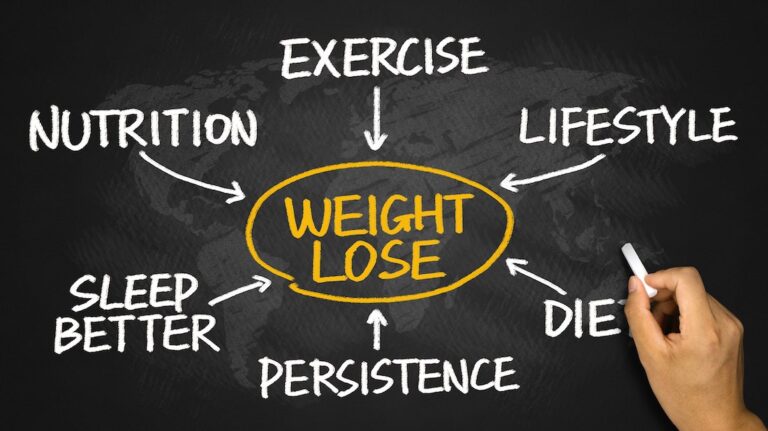My personal story and experience with dietary change
My journey began as an “entrepreneur” with a dream of building something from scratch and working for myself. But starting a business comes with a lot of obligations, and I soon found that my health was starting to fail. This affected both my ability to work and my overall quality of life. I realized that to maintain the momentum of my business, I had to make a fundamental change – I had to rethink my diet and my lifestyle.
By embracing healthy eating habits, cutting out sugar, and limiting my carbohydrate intake, I experienced a gradual transformation. I gained more energy, better focus and increased productivity. And most importantly, I was able to maintain the necessary drive to lead and develop my business with both ambition and execution.
Why diet is important for success in business
Many people believe that success in business is all about skills, experience and hard work. While these are extremely important, I find that a balanced and nutritious diet is an essential factor for success. It’s more important that the hours you work are actually effective than working a 14-hour day without accomplishing anything.
Our diet affects how our body and brain function. We need nutritious food to give our bodies energy, and to provide our brains with the necessary nutrients to think clearly, make good decisions and manage stress. Our diet can either give us the necessary impetus to push ourselves forward, or it can hold us back.
In a competitive business world, it’s important to have a clear and focused brain, and a diet rich in necessary nutrients can provide just that. That’s why I believe that anyone who wants to succeed in business needs to consider their diet carefully.
How diet affects our health, energy, focus and productivity
Our diet has a huge influence on how we feel physically and mentally. When we eat balanced and nutrient-dense meals, we give our body the fuel it needs to function optimally. Proteins, healthy fats and complex carbohydrates give us stable blood sugar and consistent energy throughout the day. This helps us stay focused and productive, which is important in a busy workday.
Furthermore, vitamins and minerals help support all the vital processes in our body – from the immune system to brain function. A nutritious diet can also contribute to better sleep, which in turn affects mood, energy levels and cognitive abilities.

What should you eat to increase your ability to work?
Here’s a list of foods you should include in your diet for optimal health and productivity:
How sugar and alcohol can have a negative effect on our brain capacity and ability to work
Sugar and alcohol can have a significant negative effect on how we function both physically and mentally, according to this Harvard study. When we eat foods high in sugar, our blood sugar levels can fluctuate wildly, resulting in energy spikes and drops. This can negatively affect our concentration and productivity. Over time, high sugar intake can also contribute to inflammation and diseases such as diabetes, which can affect our ability to work. At the same time, sugar and alcohol have a strong effect on the dopamine experience.
Alcohol is another factor that can affect brain capacity and work ability. Although a drink can be relaxing in the short term, regular alcohol consumption can disrupt sleep, affect mood and reduce cognitive functions such as memory and concentration.
Cutting sugar and refined products for stable blood sugar and better focus
One of the most effective changes I’ve made to my diet is cutting out sugar and refined products. These foods can lead to high blood sugar peaks, which can quickly be followed by low valleys. This can result in mood swings, fatigue and difficulty concentrating. By removing these from my diet, I experienced more stable blood sugar, better focus and increased productivity.
Carbohydrate restriction for better impulse control
Another important change was to limit the intake of carbohydrates. High carbohydrate intake can also lead to blood sugar fluctuations, potentially affecting our ability to control impulses. By restricting carbohydrates, I felt more in control of my choices and decisions, which is important in daily life and at work, especially as a leader.
See guide on low-carb diet.
Focus on natural, whole foods especially proteins and healthy fats for energy and cognitive function
Focusing on natural, whole foods has been another important part of my dietary changes. In particular, I have emphasized proteins and healthy fats, which are essential for both energy and cognitive function. Proteins are the building blocks of our body and are essential for repair and growth. Healthy fats, such as those found in avocados, nuts and olive oil, give us long-lasting energy and support brain function.

Examples of “superfoods” such as salmon, entrecote, vegetables, avocado and olive oil
I have a few go-to foods that I often think of as my “superfoods”. Salmon rich in omega-3 fatty acids, entrecote full of protein, colorful vegetables packed with vitamins and minerals, and olive oil rich in healthy fats. These foods give me the nutrients I need to keep me energized, productive and ready to tackle the challenges of the day. I also believe in variety. As long as you stay away from sugar and refined products, including all refined vegetable oils, I think variety is the best. These days, for example, I only eat animal products on a carnivore diet.
How to begin a process of changing eating habits, taking things gradually
Changing your diet can be a big challenge, but it can be made more manageable by taking things gradually. Start with small changes, such as replacing an unhealthy snack with a healthier alternative or reducing your sugar intake a little each day. This can be less overwhelming than trying to make big changes all at once, and small victories can encourage you to continue on the journey. And start by getting your body used to fasting. It’s much easier to plan two healthy meals every day than to plan five meals throughout the day.
The benefits of fasting and how to implement it in daily life
Fasting has many potential benefits, including improved brain function and increased energy. While it can help give our body time to “repair itself”, it’s important to go into it in a healthy and sustainable way. You can start by extending the period between dinner and breakfast, and gradually increase this fasting period. Always remember to listen to your body and seek medical advice if necessary.
How to create a diet that supports your career and lifestyle
Creating a diet that supports your career and lifestyle is all about finding a balance. It’s not just about eating healthy foods, but also about tailoring the food to your needs. If you have a busy schedule, meal prep can be key. If you often work late, you may want to have healthy meals available to avoid cravings for sugary foods. Remember, the ideal diet is the one that works best for you and supports your professional and personal goals. We all come from different metabolic upbringings and need time to adapt.
Summary
It’s important to point out that for me it’s been a long journey that has lasted almost five years. What I’ve learned is that what works for me is not necessarily right for you. But I have learned and believe that there is a common denominator. And that is that none of us benefit from sugar, refined products such as flour and vegetable oils, or alcohol. Cut down on those products and eat whole dishes and you’ll notice a gradual transformation. Even after more than four years of focusing on nutrition and exercise, I still have pain and chronic ailments that I’m working to get rid of. 30 years of unhealthy lifestyle won’t be reversed in a diet or two. Be patient and eat whole products! In other words, foods without a list of ingredients.






